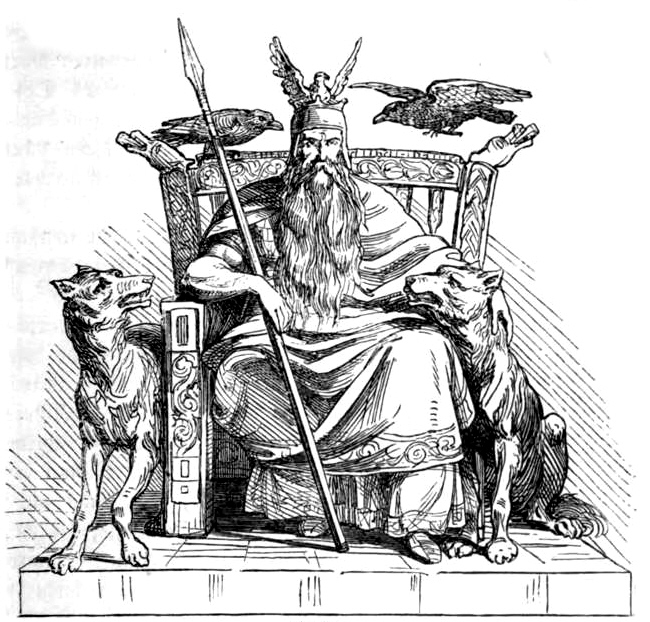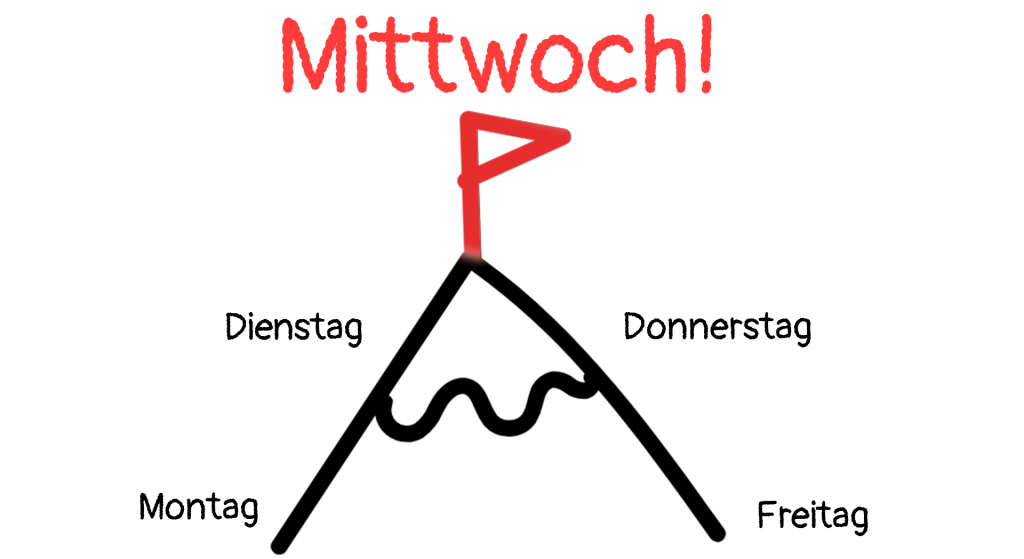What The German Mittwoch Means Posted by Sten on Jul 18, 2019 in Language, Traditions
Yesterday was Mittwoch (Wednesday), the third day of the German week. It’s a Tag (day) that does not even deserve to be called a Tag, Mittwoch simply indicates the middle of the Woche (week). And even that is not true anymore. Why does this day have to suffer so much and be singled out like this? Let’s find out.
From Wodan to Jesus
The days of the week in Germanic languages are derived from Germanische Götter (Germanic deities) and Himmelskörper (celestial bodies). But not Mittwoch. Mittwoch simply indicates the Mitte der Woche (middle of the week). Before the 10th century, it was called Wodenstag (Wodan’s Day), referring to the Germanic Gott Wodan. The reference to the Germanische Götter and Himmelskörper can still be seen in the translation used by our neighbors: woensdag in Dutch and Wednesday in English. Mercury was put into miércoles in Spanish and mercredi in French. This type of naming, after deities and celestial bodies, is originally Babylonian. The Romans and Greek brought it to Europe, and the Germanic tribes made their own version. But the Germans lost their Wodenstag. Why?
Well, the Kirche (Church) tried Christianisierung (Christianization) all over Europe in the Mittelalter (Middle Ages). But the Germanic tribes were not easy to convince. Clearly, because the Church got only one of the week’s names. While not successful in other languages, the Germans accepted Mittwoch, the middle of the Christian week.
However, since 1976, Germany defined that the week officially begins on Montag (Monday), not Sonntag (Sunday). This skews the middle of the week to Donnerstag (Thursday)! So Mittwoch is not even a Tag, and now it is not even the Mitte der Woche!
The only saving grace may just be what we made of it. Maybe.
Das Bergfest
Mittwoch is one of the least popular Wochentage (weekdays) out there. Known as “hump day” in the English world, the day at the peak of the work week, it is as close to the weekend as it is far away from the previous. You had time to reminisce the previous weekend, but yet it is too far off to get excited for the upcoming one.
In Germany, this “hump day” is known as das Bergfest (the mountain party). A Bergfest is normally a Fest (celebration) half-way through a project, to celebrate the accomplishments so-far. The work week, then, is seen as a week-long project to overcome, from the difficult Monday and Tuesday to the easier Thursday and Friday, with at the peak the Wednesday.
In this sense, Mittwoch actually is the middle of the work week!
#MittelfingerMittwoch
However, not everybody is so happy to celebrate #Bergfest, or to see it as having the hardest part of the week behind them. #MittelfingerMittwoch shows people giving the finger to the Mittwoch, a horrible day, in the middle of the week!
How was your Mittwoch? Does your language have a curiously different name for a weekday? Let me know in the comments below!

Build vocabulary, practice pronunciation, and more with Transparent Language Online. Available anytime, anywhere, on any device.





